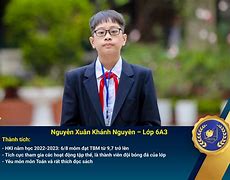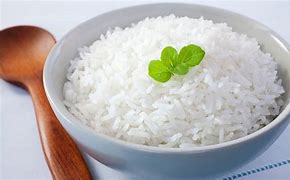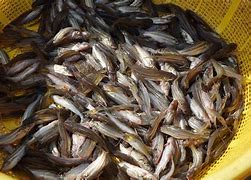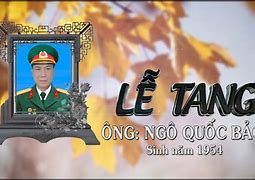
Các Trường Hợp Không Phải Mở To Khai Hải Quan
Các trường hợp xuất khẩu không phải mở tờ khai hải quan.Theo quy định của pháp luật, khi xuất khẩu hàng hóa doanh nghiệp phải mở tờ khai hải quan. Tờ khai hải quan cũng là một trong 4 loại chứng từ là điều kiện áp dụng thuế suất thuế GTGT 0% với đầu ra, và khấu trừ thuế đầu vào.
Các trường hợp xuất khẩu không phải mở tờ khai hải quan.Theo quy định của pháp luật, khi xuất khẩu hàng hóa doanh nghiệp phải mở tờ khai hải quan. Tờ khai hải quan cũng là một trong 4 loại chứng từ là điều kiện áp dụng thuế suất thuế GTGT 0% với đầu ra, và khấu trừ thuế đầu vào.
Hóa đơn có thuế GTGT của EPE có hợp lệ không?
Như trích dẫn ở trên, trừ trường hợp hàng hóa chịu thuế xuất khẩu thì các trường hợp bên nội địa bán cho bên chế xuất được chọn áp dụng nộp thuế như hàng tiêu dùng nội địa và không phải làm thủ tục hải quan. Về nghĩa vụ thuế, theo quan điểm của các cơ quan thuế hiện tại, đặc biệt khi có hướng dẫn tại thông tư 39/2018/TT-BTC như trên thì trường hợp bên chế xuất mua hàng chấp nhận hóa đơn nộp đủ các khoản thuế như hàng nội địa thì đây là hóa đơn hợp lệ trong hồ sơ tính chi phí được trừ. Trường hợp giao dịch này phát sinh thường xuyên và nhiều thì doanh nghiệp nên gửi công văn hỏi trực tiếp ý kiến của cơ quan thuế quản lý:
Hóa đơn đầu vào có thuế GTGT của doanh nghiệp chế xuất có hợp lệ không?
Quy định về Thủ tục Hải quan Tại khoản 50 điều 1 thông tư số 39/2018/TT BTC sửa đổi điều 74 tại Thông tư số 38/2015/TT-BTC ngày 25 tháng 3 năm 2015 “Điều 74. Quy định chung đối với hàng hóa xuất khẩu, nhập khẩu của DNCX 1. Hàng hóa nhập khẩu phục vụ hoạt động sản xuất sản phẩm xuất khẩu của DNCX phải thực hiện thủ tục hải quan theo quy định và sử dụng đúng với mục đích sản xuất, trừ các trường hợp sau DNCX và đối tác của DNCX được lựa chọn thực hiện hoặc không thực hiện thủ tục hải quan: a) Hàng hóa mua, bán, thuê, mượn giữa các DNCX với nhau. Trường hợp hàng hóa là nguyên liệu, vật tư, máy móc, thiết bị của hợp đồng gia công giữa các DNCX thì thực hiện theo quy định tại khoản 3 Điều 76 Thông tư này; b) Hàng hóa là vật liệu xây dựng, văn phòng phẩm, lương thực, thực phẩm, hàng tiêu dùng mua từ nội địa để xây dựng công trình, phục vụ cho điều hành bộ máy văn phòng và sinh hoạt của cán bộ, công nhân làm việc tại DNCX; c) Hàng hóa luân chuyển trong nội bộ của một DNCX, luân chuyển giữa các DNCX trong cùng một khu chế xuất; d) Hàng hóa của các DNCX thuộc một tập đoàn hay hệ thống công ty tại Việt Nam, có hạch toán phụ thuộc; đ) Hàng hóa đưa vào, đưa ra DNCX để bảo hành, sửa chữa hoặc thực hiện một số công đoạn trong hoạt động sản xuất như: kiểm tra, phân loại, đóng gói, đóng gói lại. Trường hợp không làm thủ tục hải quan, DNCX lập và lưu trữ chứng từ, sổ chi tiết việc theo dõi hàng hóa đưa vào, đưa ra theo các quy định của Bộ Tài chính về mua bán hàng hóa, chế độ kế toán, kiểm toán, trong đó xác định rõ mục đích, nguồn hàng hóa. Theo điểm 50, điều 1 thông tư 39/2018/TT-BTC sửa đổi thông tư 38/2015/TT-BTC: 2, Hàng hóa DNCX nhập khẩu từ nước ngoài đã nộp đầy đủ các loại thuế và đã thực hiện đầy đủ chính sách quản lý hàng hóa nhập khẩu theo quy định như hàng hóa nhập khẩu không hưởng chế độ, chính sách áp dụng đối với doanh nghiệp chế xuất thì khi trao đổi, mua bán hàng hóa này với doanh nghiệp nội địa không phải làm thủ tục hải quan. Hàng hóa DNCX mua từ nội địa và đã nộp đầy đủ các loại thuế theo quy định như doanh nghiệp không hưởng chế độ, chính sách áp dụng đối với doanh nghiệp chế xuất thì hoạt động mua bán này không phải làm thủ tục hải quan. Trường hợp DNCX mua từ nội địa các loại hàng hóa có thuế suất thuế xuất khẩu thì phải làm thủ tục hải quan trừ trường hợp hàng hóa này được sử dụng làm nguyên liệu, vật tư tiêu hao trong quá trình sản xuất của DNCX (Ví dụ: than đá sử dụng trong quá trình đốt lò phục vụ sản xuất của DNCX).” [collapse]
Tại khoản 50 điều 1 thông tư số 39/2018/TT BTC sửa đổi điều 74 tại Thông tư số 38/2015/TT-BTC ngày 25 tháng 3 năm 2015
“Điều 74. Quy định chung đối với hàng hóa xuất khẩu, nhập khẩu của DNCX 1. Hàng hóa nhập khẩu phục vụ hoạt động sản xuất sản phẩm xuất khẩu của DNCX phải thực hiện thủ tục hải quan theo quy định và sử dụng đúng với mục đích sản xuất, trừ các trường hợp sau DNCX và đối tác của DNCX được lựa chọn thực hiện hoặc không thực hiện thủ tục hải quan: a) Hàng hóa mua, bán, thuê, mượn giữa các DNCX với nhau. Trường hợp hàng hóa là nguyên liệu, vật tư, máy móc, thiết bị của hợp đồng gia công giữa các DNCX thì thực hiện theo quy định tại khoản 3 Điều 76 Thông tư này; b) Hàng hóa là vật liệu xây dựng, văn phòng phẩm, lương thực, thực phẩm, hàng tiêu dùng mua từ nội địa để xây dựng công trình, phục vụ cho điều hành bộ máy văn phòng và sinh hoạt của cán bộ, công nhân làm việc tại DNCX; c) Hàng hóa luân chuyển trong nội bộ của một DNCX, luân chuyển giữa các DNCX trong cùng một khu chế xuất; d) Hàng hóa của các DNCX thuộc một tập đoàn hay hệ thống công ty tại Việt Nam, có hạch toán phụ thuộc; đ) Hàng hóa đưa vào, đưa ra DNCX để bảo hành, sửa chữa hoặc thực hiện một số công đoạn trong hoạt động sản xuất như: kiểm tra, phân loại, đóng gói, đóng gói lại. Trường hợp không làm thủ tục hải quan, DNCX lập và lưu trữ chứng từ, sổ chi tiết việc theo dõi hàng hóa đưa vào, đưa ra theo các quy định của Bộ Tài chính về mua bán hàng hóa, chế độ kế toán, kiểm toán, trong đó xác định rõ mục đích, nguồn hàng hóa.
Theo điểm 50, điều 1 thông tư 39/2018/TT-BTC sửa đổi thông tư 38/2015/TT-BTC:
2, Hàng hóa DNCX nhập khẩu từ nước ngoài đã nộp đầy đủ các loại thuế và đã thực hiện đầy đủ chính sách quản lý hàng hóa nhập khẩu theo quy định như hàng hóa nhập khẩu không hưởng chế độ, chính sách áp dụng đối với doanh nghiệp chế xuất thì khi trao đổi, mua bán hàng hóa này với doanh nghiệp nội địa không phải làm thủ tục hải quan.
Hàng hóa DNCX mua từ nội địa và đã nộp đầy đủ các loại thuế theo quy định như doanh nghiệp không hưởng chế độ, chính sách áp dụng đối với doanh nghiệp chế xuất thì hoạt động mua bán này không phải làm thủ tục hải quan. Trường hợp DNCX mua từ nội địa các loại hàng hóa có thuế suất thuế xuất khẩu thì phải làm thủ tục hải quan trừ trường hợp hàng hóa này được sử dụng làm nguyên liệu, vật tư tiêu hao trong quá trình sản xuất của DNCX (Ví dụ: than đá sử dụng trong quá trình đốt lò phục vụ sản xuất của DNCX).”
English version As article 16, item 2 of Circular 219/2013/TT-BTC: If customs procedure has been completed in accordance with instructions of the Ministry of Finance: the customs declaration. If the taxpayer exports software programs in the form of physical packages, the customs declaration must be made similarly to ordinary goods in order to deduct input VAT. The customs declaration is not needed in the following cases: – The software and export exported via electronic means. The taxpayer must follow the procedure for certifying that the buyer has received the exported services or software via electronic means in accordance with the laws on electronic commerce. – The construction or installation executed overseas or in free trade zones. – Supply of electricity, water, stationery, and goods serving every day life of export processing company, including food and consumables (including personal protective equipment). As Article 1, item 50 of Circular 39/2018/TT BTC amended of article 74 in Circular No. 38/2015 / TT-BTC “Article 74. Exports and imports of EPEs Goods imported for manufacturing of domestic exports by an EPE shall undergo customs procedures and be used for intended purposes, except for the following cases in which the EPE and its partners may decide whether to follow customs procedures: a) Goods are traded, leased or lent among EPEs. If the goods are raw materials, supplies, machines and equipment under processing contracts between EPEs, follow instructions in Clause 3 Article 76 of this Circular; b) Goods are building materials, stationery, food, consumables bought from the domestic market to build, serve the operation of the EPC and life of the EPE’s employees; c) Goods circulated within an EPE or among EPEs in the same export-processing zone; d) Goods of EPEs of the same corporation or group of companies in Vietnam; dd) Goods received and dispatched by the EPE for repair, classification, packaging or repackaging. If customs procedures are nor followed, the EPE shall keep a log of goods received and dispatched in accordance with regulations of the Ministry of Finance on goods trading, accounting, audit. Purposes and sources of supply of goods must also be specified. As Article 50, item 1 circular 39/2018/TT-BTC amended for circular 38/2015/TT-BTC: Customs procedures is not required when goods imported by the EPE are sold to domestic enterprises if taxes on which have been fully paid and regulations on management of exports and imports of non-EPEs are complied with. Customs procedures are not required for trade of domestic goods purchased by the EPE if tax on which has been fully paid in accordance with regulations applied to non-EPEs. In the cases where an EPE purchases domestic goods subject to export duty, customs procedures have to be completed unless the goods are used as raw materials or supplies and consumed during the manufacture process (e.g. fossil coal burnt during production).” So, with goods and services sold into export processing zones, it is not necessary to make a custom declaration in the following cases: 1, Provide services 2, Providing software via electronic means (direct download from the network) (Selling software under the form of hard files and documents, they still have to make a custom declaration) 3, Construction and installation works 4, Providing electricity, water, stationery and daily-life utensils for operating office and living apparatus of officials and workers working in EPEs, construction materials for construction of works in EPEs 5, Goods sold between export enterprises together, Goods exchanged between EPEs for warranty, repair and some stages in production activities. 6, Goods of EPEs imported from foreign countries have paid taxes and performed the procedures as prescribed when exchanging and buying and selling these goods with domestic enterprises is not require to make customs procedures. 7, Goods sold from domestic enterprises to export processing zones and EPEs have already paid all taxes as stipulated by normal enterprises in case the goods do not incurred export tax, not require to make customs declarations. . In the case that the item has export tax, it is not require to make customs procedures if the goods are used as raw materials and materials consumed in the production process of EPEs. [collapse]
As article 16, item 2 of Circular 219/2013/TT-BTC:
If the taxpayer exports software programs in the form of physical packages, the customs declaration must be made similarly to ordinary goods in order to deduct input VAT.
The customs declaration is not needed in the following cases:
– The software and export exported via electronic means. The taxpayer must follow the procedure for certifying that the buyer has received the exported services or software via electronic means in accordance with the laws on electronic commerce.
– The construction or installation executed overseas or in free trade zones.
– Supply of electricity, water, stationery, and goods serving every day life of export processing company, including food and consumables (including personal protective equipment).
As Article 1, item 50 of Circular 39/2018/TT BTC amended of article 74 in Circular No. 38/2015 / TT-BTC
“Article 74. Exports and imports of EPEs
If customs procedures are nor followed, the EPE shall keep a log of goods received and dispatched in accordance with regulations of the Ministry of Finance on goods trading, accounting, audit. Purposes and sources of supply of goods must also be specified.
As Article 50, item 1 circular 39/2018/TT-BTC amended for circular 38/2015/TT-BTC:
Customs procedures are not required for trade of domestic goods purchased by the EPE if tax on which has been fully paid in accordance with regulations applied to non-EPEs. In the cases where an EPE purchases domestic goods subject to export duty, customs procedures have to be completed unless the goods are used as raw materials or supplies and consumed during the manufacture process (e.g. fossil coal burnt during production).”
So, with goods and services sold into export processing zones, it is not necessary to make a custom declaration in the following cases:
2, Providing software via electronic means (direct download from the network) (Selling software under the form of hard files and documents, they still have to make a custom declaration)
3, Construction and installation works
4, Providing electricity, water, stationery and daily-life utensils for operating office and living apparatus of officials and workers working in EPEs, construction materials for construction of works in EPEs
5, Goods sold between export enterprises together, Goods exchanged between EPEs for warranty, repair and some stages in production activities.
6, Goods of EPEs imported from foreign countries have paid taxes and performed the procedures as prescribed when exchanging and buying and selling these goods with domestic enterprises is not require to make customs procedures.
7, Goods sold from domestic enterprises to export processing zones and EPEs have already paid all taxes as stipulated by normal enterprises in case the goods do not incurred export tax, not require to make customs declarations. .
In the case that the item has export tax, it is not require to make customs procedures if the goods are used as raw materials and materials consumed in the production process of EPEs.
Biên soạn: Nguyễn Hồng Tươi – Tư vấn viên
Bản tin này chỉ mang tính chất tham khảo, không phải ý kiến tư vấn cụ thể cho bất kì trường hợp nào.






















